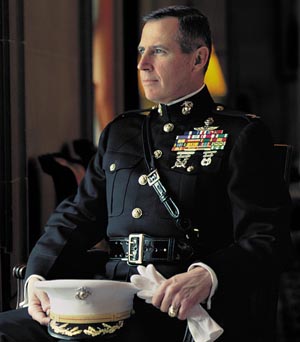
Excerpt from the talk, “Fostering an Organic Society: Principles and Examples” given by James Bascom at the 2013 TFP National Conference on October 27, 2013
The first principle is that within every man there are potentialities that must be developed. Every man is born with an enormous variety of qualities, propensities, and strengths that seek to be realized to their fullest. We possess these potentialities to such a degree that even if we attain sanctity we cannot possibly realize them all. Society should encourage man to turn his potential into action and provide him with abundant means to do so. Thus souls will become ever more perfect in the image of God.
Man is not just a consumer. Rather he is a creature of God with intelligence and free will who is in search of moral, spiritual, and social perfection. In order to attain this perfection, man needs the help of others in society.
To return to our organism metaphor, each man is like an individual cell in a body. Each cell is beautiful and unique. But it needs the other tissues and organs in the body not only to survive, but to develop itself to its fullest and fulfill the mission written in its DNA.

Take Colonel John Ripley for example. He was a man of exceptional abilities. He had a rare ability to lead other men in battle. He practiced great bravery, strength, endurance, virtue, and moral courage, both on and off the battlefield. Now if he had spent his life as a mountain man in the hills of southern Virginia, could he have developed himself into the hero we all know? Without human society, without his family, the Marine Corps, the Naval Academy, and above all his Faith, he would not have had the occasion to develop his many virtues and qualities that we admire so much.
The basic and most important society for helping man develop his potential is the family. But the modern concept of the family is very different from the medieval, organic conception. Most people today imagine the nuclear family to be the ideal family, that is, father, mother and perhaps a few children. This is the family reduced to an absolute minimum. The true family that existed in the Middle Ages all the way until the twentieth century consisted of the father and mother with their numerous children as well as the extended family: cousins, uncles, aunts, nephews, nieces, and grandparents. The traditional family all lived under the same roof or very close together in the same village or city, not spread out across the country like today.
The family did not consist only of those who were currently living. Rather, the family was seen as a lineage, extending from the past into the present with a view into the future. Every social class in society had lineages, from the royal family down to the simplest peasant family, and many families had lineages extending back centuries.
What Does Saint Thomas Say About Immigration?
There were families of traders, carpenters, composers, stone masons, farmers, vintners, artists, scholars, scientists, and sailors. Each family distilled its qualities and unique gifts over the generations, and the children who were born into them learned the family profession from birth.
A beautiful example of the development of potential in the individual and in a family is the story of the Beam family of Kentucky, arguably the most important family in the production of Kentucky bourbon.
Jacob Beam immigrated to the United States from Germany and started distilling whisky in 1788. He would go on to teach his son everything he knew about making bourbon, and they in turn passed on the knowledge to their sons and grandsons. The dynasty of Beam distillers and their artistry have shaped the industry so much they could very well be considered the aristocracy of the bourbon industry.
When Mr. Norman Fulkerson toured the Beam distillery in Clermont, Kentucky, his tour guide was Erica Boone, an eighth generation descendant of Jacob Beam. She explained the ins and outs of the distillery with an uncommon enthusiasm.
What does Saint Thomas Aquinas say about Marriage?
“I love what I do,” Erica admitted. “I am not just an employee; I am a member of the family…” Her words trailed off as she begged pardon for “getting teary eyed.” When she regained her composure, Mr. Fulkerson asked “Why the tears?”
“It’s the heritage,” she responded. “You have no idea what it means to be able to trace your roots back 200 years. It gives such a sense of self-awareness.”
[like url=https://www.facebook.com/ReturnToOrder.org]
How different young people are today. They believe the egalitarian myth that everybody should go to university, regardless of family history or personal ability. They frequently ignore the traditional occupation of their family. As a result, they wander through life unsure of themselves and their calling, often with enormous student debt and a degree that corresponds little to their real talents. According to the Washington Post, only 27% of college graduates today have a job directly related to their major. At Penn State University, 80 percent of freshmen — even those who have declared a major — say they are uncertain about their major, and half will change their minds after they declare.


